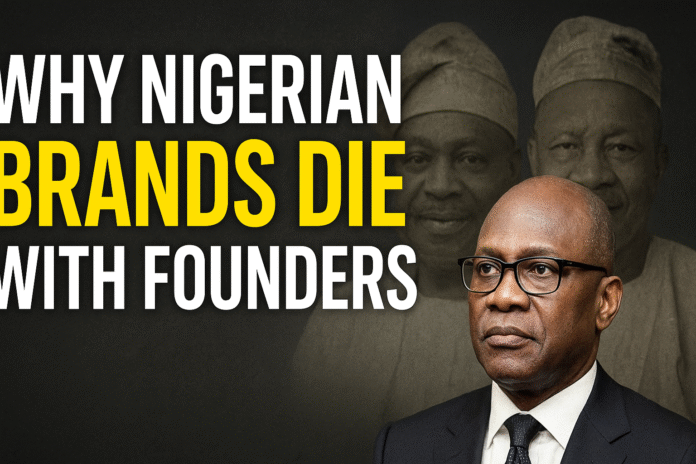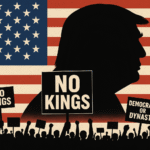
In Nigeria’s industrial history, countless homegrown companies have risen to prominence only to fade into obscurity once their visionary founders pass away. This troubling trend has stunted the country’s manufacturing, media, and service sectors for decades — but new signs suggest the tide may be slowly turning.
When the Founder Leaves, the Brand Leaves Too
In the 1970s and 1980s, factories like Star Paper Mill in Aba and Fuason Industries in Owerri were not just businesses; they were economic anchors for their communities. Yet after the passing of their founders, these enterprises crumbled. Leadership gaps, family disputes, and lack of institutional structure often meant there was no one capable of sustaining the vision.
This story is not unique. The Concord Group, built by the late MKO Abiola into a media and business powerhouse spanning publishing, aviation, agriculture, and hospitality, eventually disintegrated. In many cases, businesses collapse because they are built entirely around the founder’s personal drive, with no systems to ensure continuity.
- No Kings: Millions of Americans March Against Trump’s “Authoritarian Rule”Spread the love Historic Protests Sweep Across America In what analysts are calling one of… Read more: No Kings: Millions of Americans March Against Trump’s “Authoritarian Rule”
- Millions of Americans March Against “King Trump” – The ‘No Kings’ Movement Sweeps the NationMillions of Americans join the “No Kings” protests, challenging Donald Trump’s alleged authoritarianism and calling for the defense of U.S. democracy. A historic movement is reshaping the nation’s political future.
The Global Contrast
Internationally, brands like IBM, Coca-Cola, Nestlé, and General Electric have thrived well beyond their founders. They achieved this by creating structures that survive leadership changes, often blending family stewardship with professional management.
A Rare Nigerian Example of Survival
One standout Nigerian case is Industrial and General Insurance (IGI). After the death of its founder in 2014, the company appointed new leadership, stabilized operations, and even paid ₦1.8 billion in claims in 2024. With new 2025 performance targets, IGI proves that founder-led businesses can outlive their originators if well-managed.

Succession Done Right
Some Nigerian tycoons are rewriting the narrative by preparing the next generation to lead:
Coscharis Group — Founder Cosmas Maduka has integrated his son into top management as Executive Director.
Dangote Group — Aliko Dangote recently handed over key executive roles to his daughters Mariya, Halima, and Fatima, embedding family leadership into Africa’s largest industrial empire.
Sun Newspapers — Neya Kalu has stepped up as Publisher, taking over from her father, Senator Orji Uzor Kalu.
First City Monument Bank (FCMB) — Late founder Otunba Subomi Balogun carefully planned the transition to his son Bolaji, ensuring harmony among siblings and continuity in management and philanthropy.
Globacom (Glo) — Mike Adenuga has positioned his daughters Bella Disu (Executive Vice Chairman) and Shade Adenuga (Executive Director) in strategic leadership roles.

Government Intervention
Recognizing the economic value of lost industries, the Abia State Government is in talks with AMCON to revive the defunct Star Paper Mill. If successful, it could restore hundreds of jobs and bring manufacturing back to a region once known for its industrial vibrancy.
The Bigger Picture
Research shows that over 70% of Nigerian family businesses do not survive beyond the first generation. The absence of succession planning, weak governance, and over-reliance on founders’ personalities are key factors.
However, the moves by IGI, Dangote Group, and others show that with intentional leadership transfer and strong corporate structures, Nigerian brands can stand the test of time.
For Nigeria’s economy to thrive, we must normalize succession planning, professional management, and brand sustainability. A great founder can start a legacy — but only great structures can preserve it.















